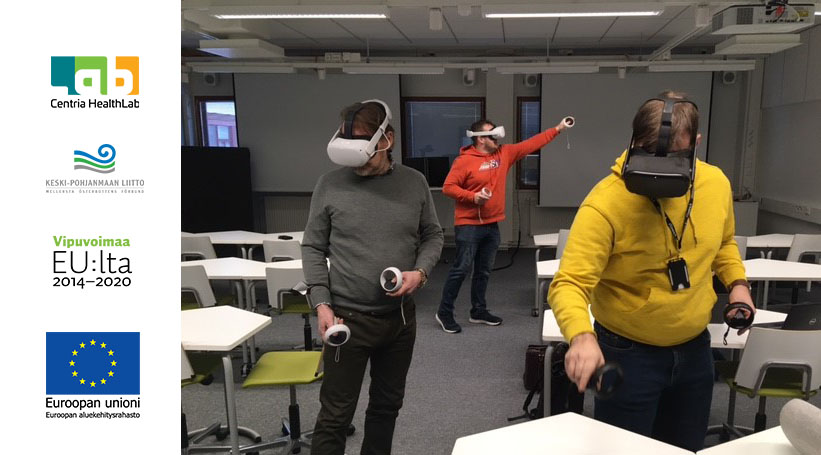Heidi Kaartinen
Heidi Hintsala

Technology-driven products and services are popping up like mushrooms in the rain, but what are the processes behind their development and how can they meet the needs of the social and health care sector? The HIPPA-Remote project has studied and supported user-driven, health-safe and resource-wise product development in the social and health care sector by companies and service providers through remote and hybrid development services.
Continuous change in the social and healthcare sector, as well as labour shortages, create a need for new solutions that can be supported by digitalisation, technologies and new services (Tevameri 2023). In addition, there is increasing interest on personalized health and individual lifelong wellness of all people, which could be supported by new technologies and digital services. Home care and assisted living are rapidly increasing service sectors in aging developed countries (European Commission 2021) and have therefore emerged as a particular area for development.
The two-year HIPPA-Remote project has developed and tested novel remote and hybrid applications and services for the development of new and innovative digital products for social and health care, focusing on home care and assisted living. Remote implementations allow businesses and professionals to participate in support services wherever they are. At the same time, product development, quality and accessibility will be improved.
The project has also increased companies’ awareness of product commercialisation, marketing, regulations and factors affecting procurement processes. As a result of these measures, companies’ business and skills have grown and developed, while new digitalisation business opportunities have been created in the sector.
Collaborative project implementation
The HIPPA-Remote project has been implemented as three independently financed, but interlinked cross-border sister projects of three regions, Central Ostrobothnia (Centria UAS), Pirkanmaa (TAMK) and Uusimaa (Metropolia). The salt and pepper of the project have been the joint meetings of the sister projects, where experiences and issues have been shared and talked about.
One joint effort of these three projects has been to develop an open access database of stories from home care and assisted living customers. The developed database aims to increase awareness of technology developers on their customers everyday life, activities, social relations, challenges and to provide better understanding to the needs that could be fulfilled with new technological innovations.
The database has been gathered by the project personnel in all the project areas. The method has been systematic interviewing of the experts themselves: aging people and people with disabilities or mental health challenges. There are currently ca. 200 stories in the database and processes to continue data collection after the project has been developed. The developed open access database will be published during autumn 2023.
Also, virtual morning coffee events were arranged together by projects. Each project organized speakers of specific topics to give their insights to the health technology companies and social and health care providers. These topics included medical device regulation (MDR), health technology assessment (HTA), innovation ability, and device and software accessibility. The regional projects provided also more depth insights for the attending local companies, such as sparring for national Digi-HTA process (Centria HealthLab 2023, Kämäräinen 2023) and remote piloting and testing of their novel technologies for assisted living.
Virtual co-creation and simulation environments
The Centria’s project created novel digital development environments applying different virtual environments and technologies with varying simulation and modelling methods. The established new environments support the digitalisation and product development of companies and service providers and enable rapid trials and testing of products and services developed by companies. These environments represented both real assisted living facilities that were scanned and modelled, as well as models of typical houses or apartments that the customers could live in (Kuorikoski 2023).
The simulations enabled interactive facilities and characters, such as kitchen for cooking, opening doors, aging person, nurses and relatives, and communication between them (Kuorikoski 2023). Virtual environments were applied to simulate events and interaction to test and demonstrate the use of novel technologies and digital services in their early stages of development. The attending companies tried out the created virtual development and demonstration environments e.g., with a new device concept for health and safety monitoring and application to support successful communication and interaction in care settings.
HIPPA-Remote, project for new business opportunities
The COVID 19 pandemic created a need for various forms of development and the social and health care industry is no exception. The prevailing practices, thought to be unchangeable, have had to be reassessed and new practices introduced under duress during the crisis have been refined and made permanent. The HIPPA-Remote project has also responded to the digitalisation needs of businesses, the public sector and the third sector in terms of recovery from the negative effects of pandemic.
The HIPPA-Remote project, funded by the European Regional Development Fund, aimed to create new business opportunities for companies related to digitalisation in the social and health care sector, focusing on the needs of home care and assisted living. It also aimed to improve opportunities for business and skills growth and development in the health care sector in the areas of commercialisation and marketing, sustainability and green growth, new business models, regulations and procurement processes.
Companies and health and social care service providers were supported to jointly develop digital products and services to improve safety, social connectivity, resident empowerment, accessibility and cost-effectiveness of servicesand home care. The collaboratively created new innovative location independent cocreation methods and protocols were published and experienced shared to support their usage among all actors interested in the technological development of home care and assisted living. Future projects are suggested to further develop and apply the new multidisciplinary custom-orientated methods in other settings of social and health care and with different industries.
Project information: HIPPA-Remote project is financed by the European Regional Development Fund as part of the measures implemented by the European Union due to the COVID-19 pandemic.
References
Centria HealthLab 2023. Digi-HTA sparring. Available at: https://centriahealthlab.fi/teknologia-alan-yrityksille/. Referred 7.8.2023.
European Commission, Directorate-General for Economic and Financial Affairs 2021. The 2021 ageing report: economic & budgetary projections for the EU Member States (2019-2070). Publications Office. Available at: https://data.europa.eu/doi/10.2765/84455. Referred 8.8.2023.
Kuorikoski, J. 2023. Virtuaalitodellisuus tuotekehitysympäristönä. Available at: Virtuaalitodellisuus tuotekehitysympäristönä – TUTTU net. Referred 4.8.2023.
Kämäräinen, P. 2023. Ammattikorkeakoulut yritysten tukena digi-HTA-arviointiin lähtiessä. Manuscript. 2023.
Tevameri, T. 2023. Sote-palveluala. Työvoima, yksityisen sektorin rooli ja kansainvälistyminen. TEM toimialaraportit 2023:2. Available at: https://julkaisut.valtioneuvosto.fi/handle/10024/164805. Referred 8.8.2023.
Heidi Kaartinen
RDI-specialist, project communications
Centria University of Applied Sciences
Tel. +358 40 729 9951
Heidi Hintsala
RDI Coordinator, project manager
Centria University of Applied Sciences
Tel. +358 40 185 6259

